Aaron Bisman may not be Broadway-obsessed – he avoided listening to the Hamilton soundtrack until he finally snagged tix – but he’s a bona fide Music Man. After co-founding JDub Records, the Jewish non-profit record label that launched Matisyahu into stardom and modeled Jewish innovation for a decade, Aaron parlayed his experience building programs and audiences for emerging artists into his current role as the Director of Audience Development at Jazz at Lincoln Center.
We tried to help diversify his 10+ years of Jewish SEO by discussing parenthood, his favorite tunes, his best practices for a healthy marriage, management tips, and more.
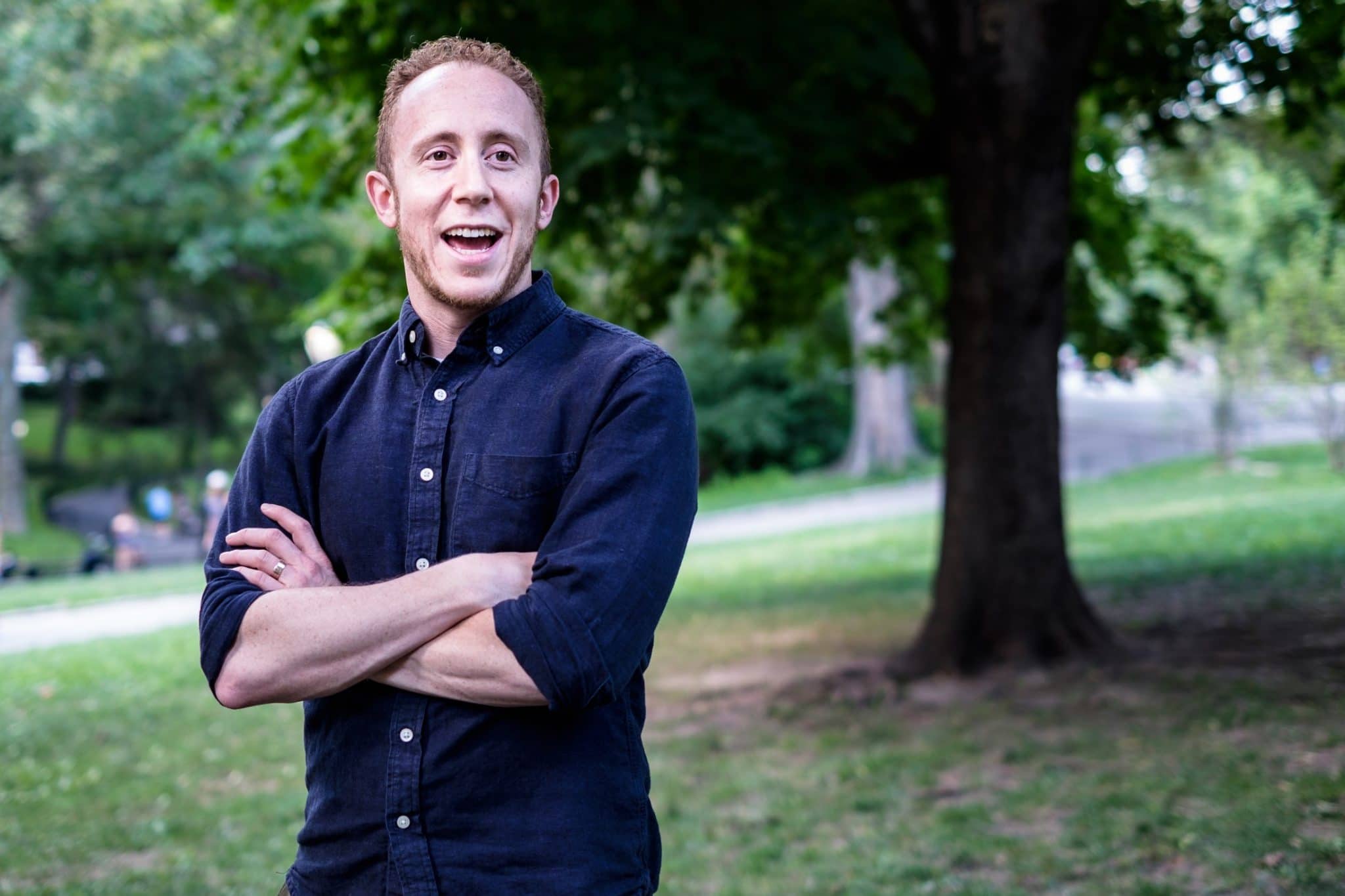
What kind of kid were you?
Difficult. Obnoxious. I was pretty haughty. I definitely thought I knew what was best all the time.
Did you have a dream career?
When I was really young, I thought I wanted to be a lawyer. Then, by high school, my closest friends were musicians, and I got it in my head that I wanted to get into music. In between, I wanted to be a puppeteer. I really liked The Muppets.
What music were you listening to in high school?
A lot of hip hop. Grand Puba, Wu Tang’s 36 Chambers, The Roots’ Do You Want More?!!!??!, and Labcabincalifornia by The Pharcyde. My camp, Jewish, non-school friends liked what we would now call hippie rock.
I was a Jewish high school boy, so I lived and died by the Beastie Boys.
My parents did not listen to a lot of music, like Chassidic song festival records, Johnny Mathis, and NPR.
What were some of your favorite camp moments?
I went for a summer going into 5th grade, and it was the worst thing ever. I took a year off, and I went back in 7th grade. It was great and part of my universe for a long time.
There was a lot of music. Shaved my bunk number in my head. It was our playground. I did a lot of hiking. I went to Camp Ramah in California, Ojai. One of the most magical places.
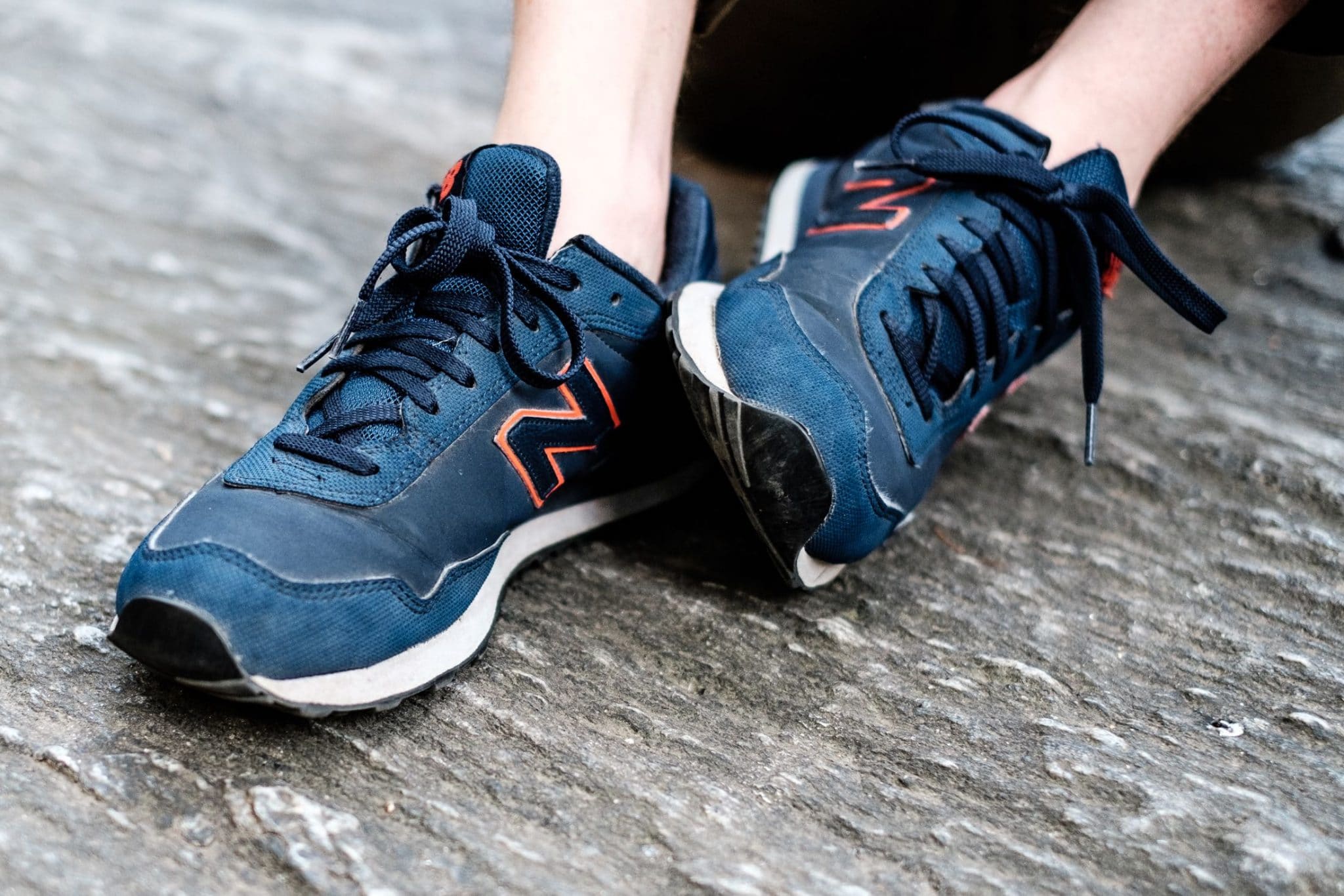
How did your relationship to Judaism change when you went to college?
I like Jewish ritual. The fact that we have rituals that have been passed down in one form or another for a really long time is interesting and unique. I question a lot, but I think it’s nice to be a part of something or at least to attempt to connect. Shabbat dinner, cooking for people, hosting people at our home, those kinds of things are totally, completely hardwired in.
For me, the big thing about coming to college was the disillusionment of the Conservative movement’s vision of an engaged, knowledgeable, committed, egalitarian, world of people. It’s not true. It doesn’t exist. The Orthodox kids were the core energy of the Jewish initiatives on campus.
There was no community of people who shared my exact weird mix of Jewish values, so that was frustrating.
I cobbled together a group of Jewy friends. Not Orthodox, not really into any sort of labels, wanting to do something Jewy, making our own way of it.
You launched JDub, the music label that you ran for a decade, in college. How did it come into being?
The dream was to run my own thing in music.
My friend made this really interesting, weird mix of some Jewish melodies, some melodies he’d written in Hebrew, just sort of hodgepodge’d together genre-wise, and it was fascinating. We heard an opportunity in it. The basic idea was that one guy in his bedroom can’t be the only one creating something that sounds this interesting that doesn’t belong in a Hillel, doesn’t belong in a shul. It could be in the Mercury Lounge. It’s interesting and good music.
Frank London, who’s a great trumpet player and founder of The Klezmatics, and also the horn player on Going Back To Cali, LL Cool J’s song, was an early mentor and advisor. He said, “You gotta check out this kid, Socalled.” Now there’s two guys playing very different types of music that both fit in to this notion of authentically Jewish and very modern.
The fact that it’s Jewish doesn’t need to relegate it to a Jewish space, it’s just an authentic expression of who these people are as artists.
If there are two, there have to be more.
My senior year of college, my co-founder, Ben Hesse, and I would walk around Alphabet City and the East Village every weekend and work it out. Somewhere in there, he met Matisyahu, who was called Matt, at the time. Matt came to our apartment and recorded some stuff, and we thought, “He’s the third. If he’s the third, and he’s clearly the breakout star, we’re good. There’s a thing here.”
We got a grant, then we had to do this thing.
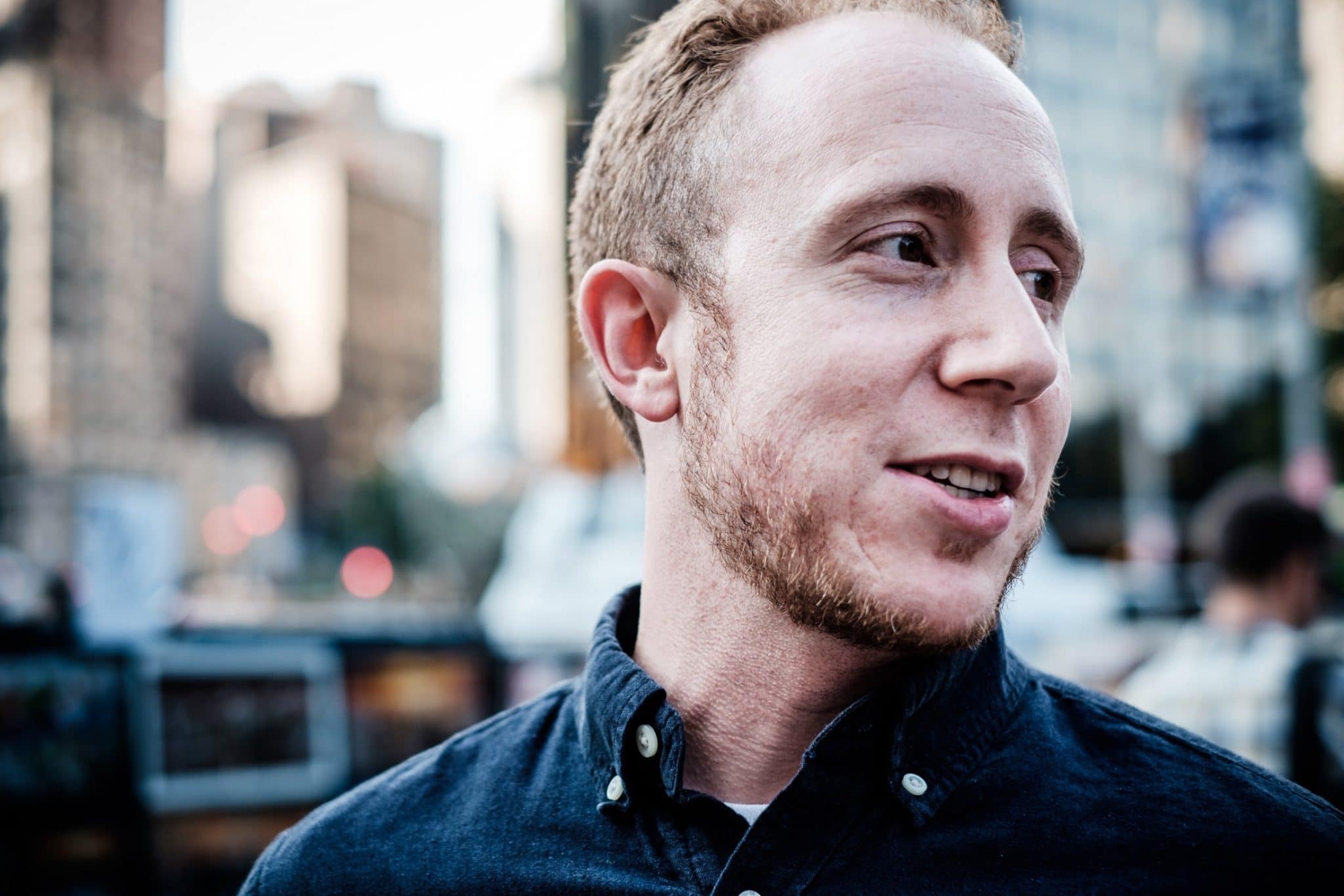
Why did you ultimately shut down JDub and how did you deal with its end?
It started as a record company, then we said, “We can’t just put out the music if no one is managing these artists.” From the beginning, it was a record label, event production, some artist management, and whatever else we needed to do.
We worked with over 20 artists, we ultimately acquired Jewcy, which I thought of at the time as a Jewish Huffington Post, we went on to do a lot of consulting work, we helped Tablet in its first couple of years. Along the way, we co-founded an artists’ fellowship.
Ultimately, making money in music is fucking hard.
Less grant money, much harder to earn money, and rising operational costs. I couldn’t figure out how to make it work.
I had a good support system, and we made the decision early enough that I was able to do it the right way. My employees got severance, we assured that the music wouldn’t get taken off of shelves. We did it all very transparently, we wanted to be able to learn from the experience.
9 years is a major success for a music company or a non-profit, and we looked at it as an experiment and named it as such. We were proud of what we had done. In one way, leaving was hard; in another way, I was glad for how long we survived.
My daughter was born a month after we announced that we were closing, so it was like one child going away and another coming into being. I was ready to do other things. I took a couple months off and decompressed, took care of my kids, then I moved forward.
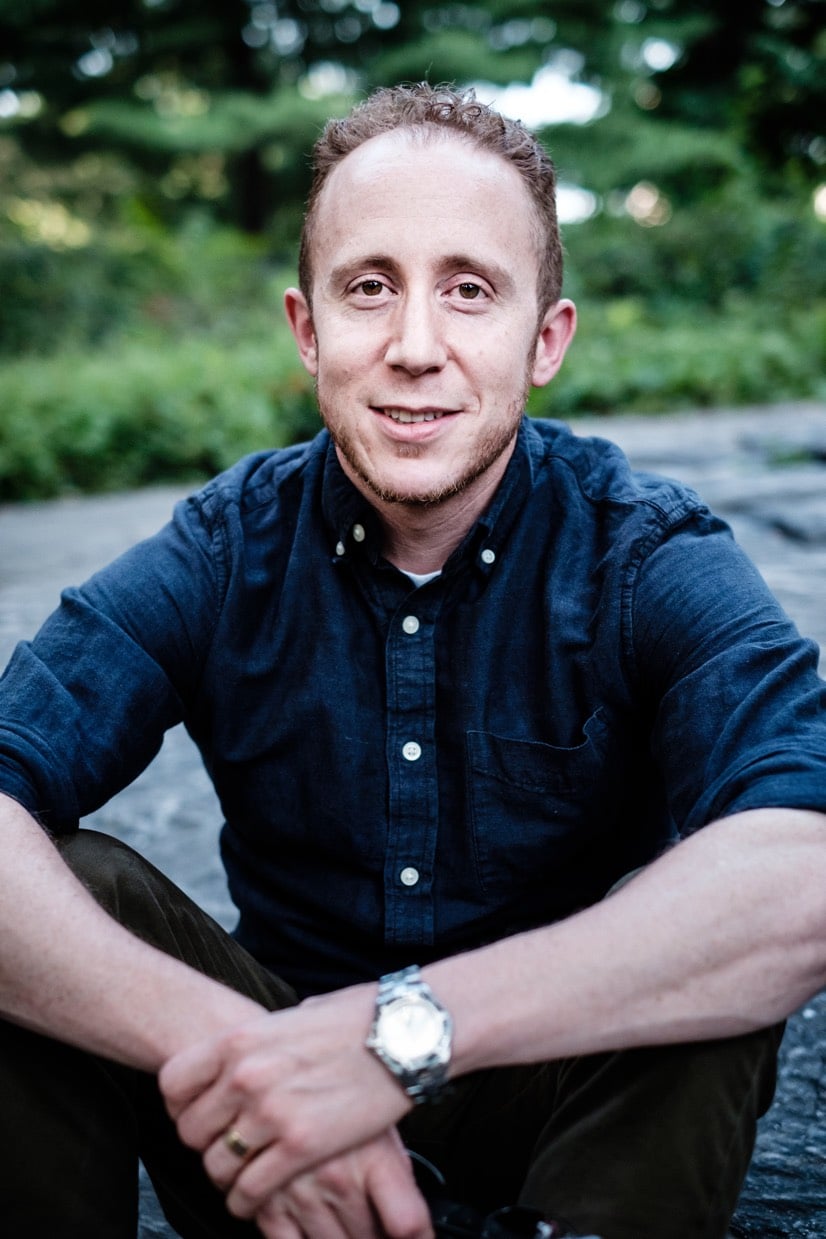
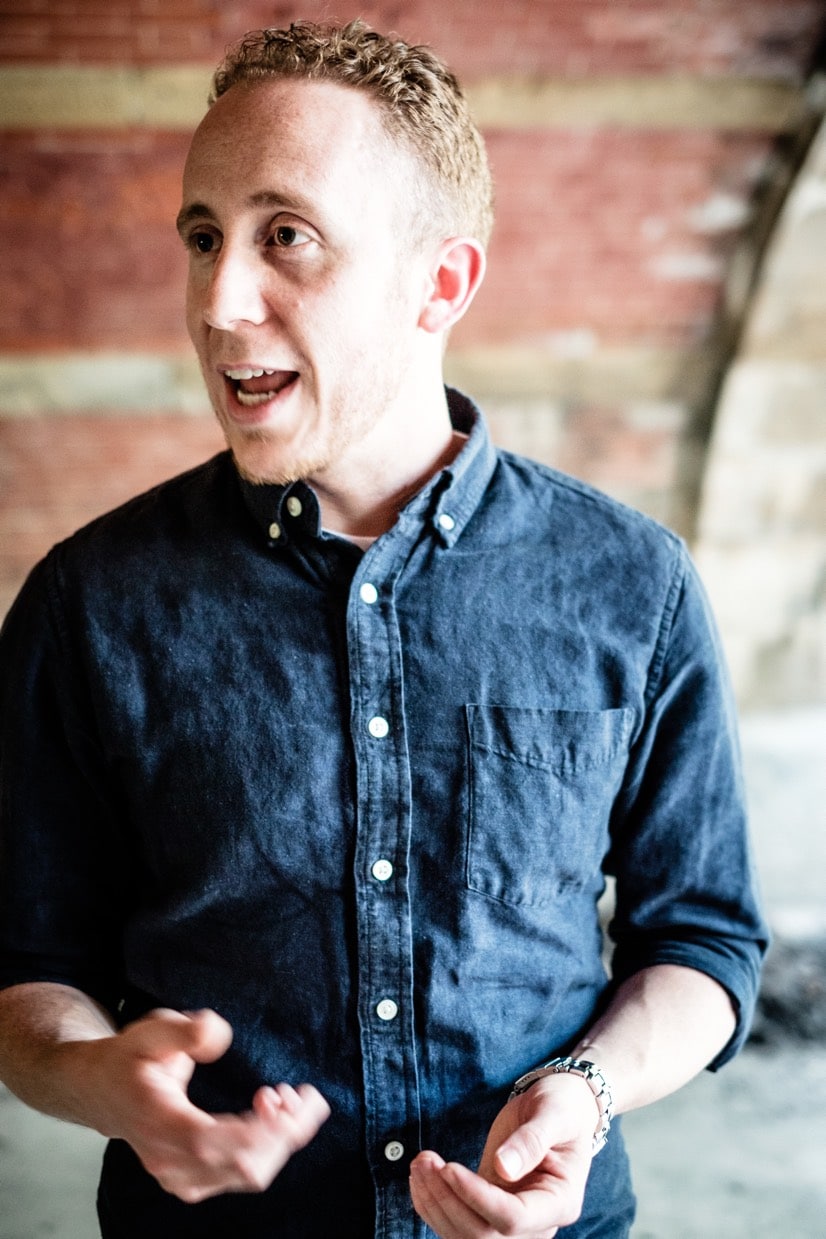
You have three kids, you’ve been married for over 10 years. What works for you and your wife as a team?
I didn’t tell my wife I was doing this!
We both went through a training called the Rockwood Leadership Program. It’s a leadership training program for activists, but there’s a lot of work around giving and receiving feedback and positional power and conflict resolution and owning your own place in any of those things. We had a shared vocabulary. My wife is an excellent communicator and strategic thinker in every facet of her life, so that contributes to our relationship.
We talk about everything.
We have shared values. She’s not a die hard music person, although she did keep the t-shirt from her first Bruce Springsteen concert, which we hope one of our kids will want to wear one day. When we got married, I had two rules: you have to move to Brooklyn, and you can never become a rabbi. Now she runs a school, and, somehow, I’m still a rebbetzin, which we laugh about now.
What are the best parts about being a father?
You make little human beings who look like you, and they have your characteristics, which is good and bad.
They love music. The picture that I will get the most burned for when my son is an adult is him in a diaper, and he has a microphone made out of legos, and he’s screaming into it. My kids have band practice often, that’s their thing. They’re smart and intelligent and funny.
You need a certain amount of selflessness. Whether you have it or not, it is required of you.
It’s not all bad, it’s just that there’s a lot to do all the time. I didn’t play any sports, but should we give up our weekends so my son can play soccer if he’s into it? I want to bring my kids to Celebrate Brooklyn and take them to shows, and it doesn’t really work in their life. On one hand, that’s a bummer; on the other, I know the reality of exhausted children and what they do to everyone else.
Little people who look like you and have your DNA fundamentally are awesome, even though they are exhausting. Totally, completely exhausting.
What have you learned since you had kids?
Being up at sunrise isn’t that bad. There’s actually something really nice about it, even if getting yourself out of bed is painful.
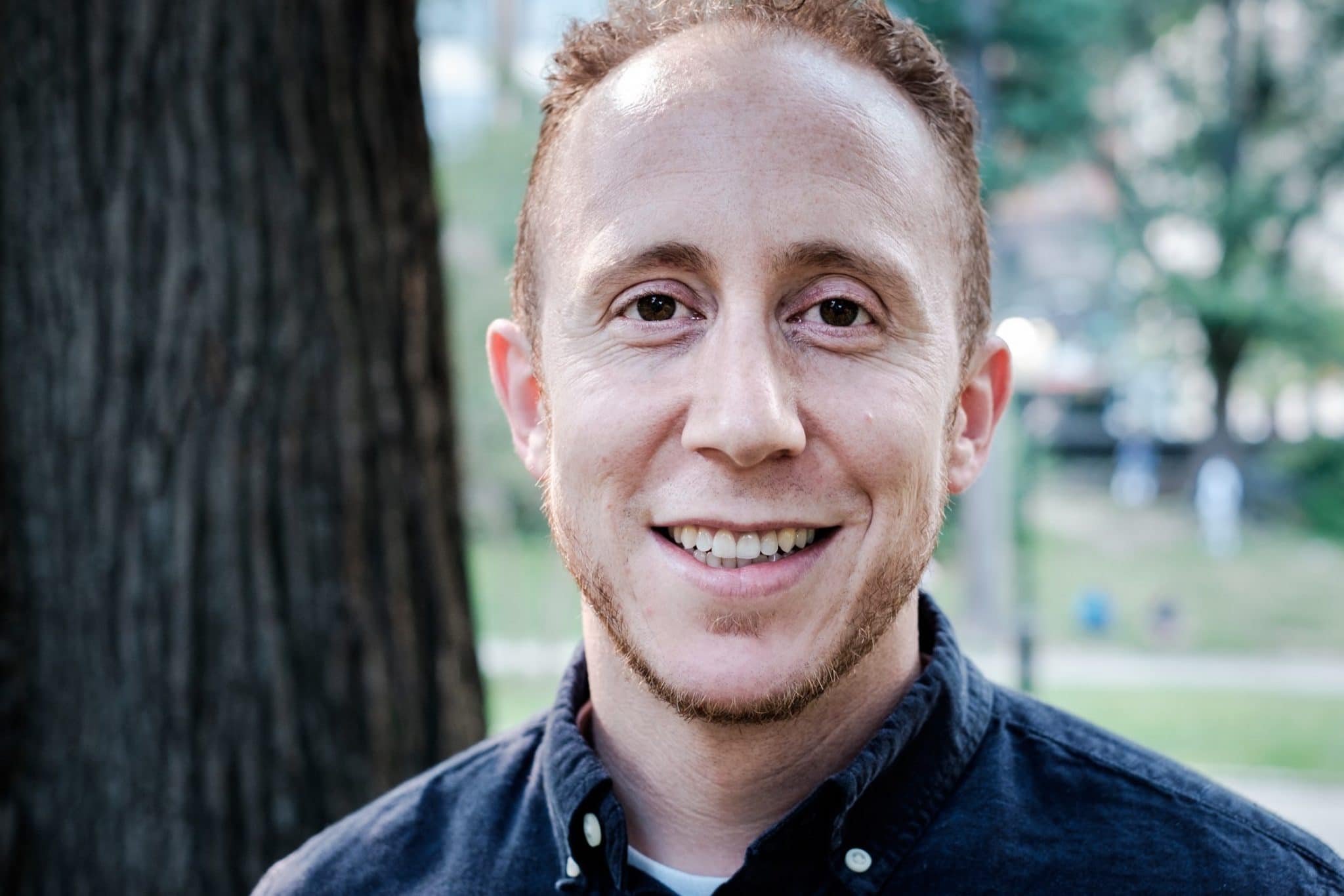
What music do you listen to these days? What do your kids listen to?
My son has two playlists on Spotify. I’ve gotten him into Daft Punk, because the idea that they’re robots is cool. My son was poisoned with The Wiggles and Barney. That was not my doing. He’s over it now, but I’m desperately struggling to give him other things. His playlist includes LCD, The Police, They Might Be Giants – their kid’s stuff is legit.
I like world music. I’m not up on Israeli music, but a friend posted on Facebook about Shai Tsabari, this Israeli Sephardic singer, and I recently watched a video on Balkan Beat Box’s bass player. Mbongwana Star is a Congolese band that I like.
I appreciate pop music, but it’s not where I wanna live.
I will be at the Digable Planets reunion show, but I am not an active hip hop listener anywhere close to the way I was. I lean towards the worldly stuff and indie rock. I’m always happy to listen to Wilco and, sometimes, I still secretly listen to Phish.
Oh, wait, I didn’t say jazz! I listen to a lot of jazz! I run a jazz label! Our label is mostly archival recordings of past concerts, but we released a studio record with the bass player from our orchestra, Carlos Henriquez, which is awesome. I was listening yesterday to Etienne Charles, a pretty young player who plays at our club, Dizzy’s Coca Cola, and all around the city. I was just listening to the Christian McBride Trio, which is also awesome.
What’s a cause you care about?
I’m very interested in what used to be called coexistence work. The painful challenging work between Palestinians and Israelis and Jews, I worry, is unsolvable and intractable, but it’s really very important to me.
Favorite Jewish holiday and why?
I’m one of those weird people who likes Yom Kippur because I like the music. Passover‘s a real family thing now, although I kind of like being in a grown-up conversation.
Within the next 5-10 years, what is something that you really want to accomplish?
I want to go to Patagonia. Badly. I want to spend a lot of time in the national parks. I’ve always wanted to go hang gliding. I like building things. We built a minyan, I helped build a record company at work. I’m not a maker in the physical tinkering sense of things, but in terms of building community or building structure, bringing things into being. I don’t know what the next things are, but that continues to be important to me.
Photos by Josh Dormont
Thank you for visiting Arq!
Arq is no longer publishing new content. We hope you'll enjoy our archived posts.